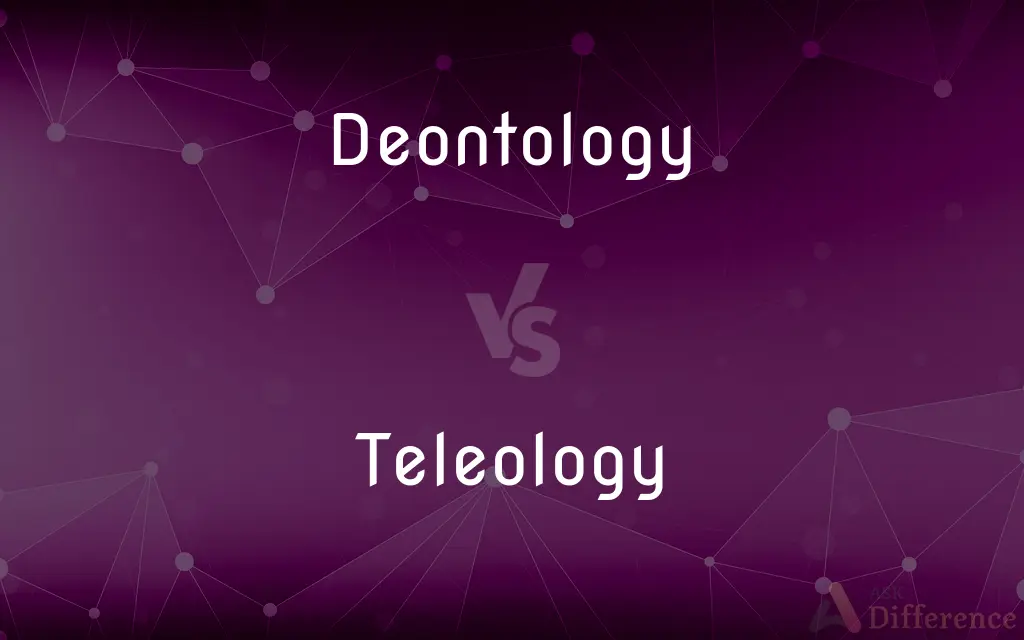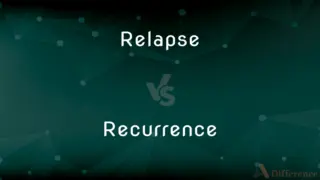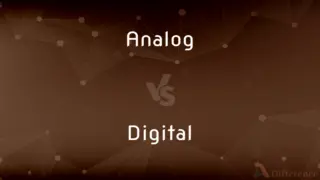Deontology vs. Teleology — What's the Difference?
By Tayyaba Rehman — Updated on October 28, 2023
Deontology focuses on rules and duties, while Teleology emphasizes outcomes or purposes.

Difference Between Deontology and Teleology
Table of Contents
ADVERTISEMENT
Key Differences
Deontology and Teleology are two primary ethical theories. Deontology is grounded in the belief that morality is determined by rules and duties. In contrast, Teleology holds that the moral value of an action is determined by its outcome or purpose.
Deontology asserts that certain actions are inherently right or wrong, irrespective of their outcomes. Teleology, however, would argue that the morality of an action is based on the goodness or badness of its results.
In the realm of Deontology, individuals have moral duties to act in specific ways, even if it might lead to less favorable outcomes. For Teleology, the end justifies the means, and actions are morally permissible if they result in the best possible outcome.
Deontology often is associated with the philosopher Immanuel Kant, who believed in duty-based ethics. In contrast, Teleology finds its roots in utilitarianism, where the focus is on maximizing happiness or pleasure.
At its core, Deontology emphasizes the importance of adhering to moral rules, while Teleology evaluates actions by their consequences or final purposes.
ADVERTISEMENT
Comparison Chart
Basic Principle
Morality based on rules and duties
Morality based on outcomes or purposes
Action Evaluation
Inherent rightness/wrongness of actions
Goodness/badness of results
Philosophical Roots
Associated with Immanuel Kant
Rooted in utilitarianism
Common Assertion
Some actions are always wrong, regardless of consequences
An action is right if it leads to the best outcome
Focus
Adherence to moral rules
Maximizing beneficial consequences or final purposes
Compare with Definitions
Deontology
A system of ethics focused on inherent moral duties.
Deontology holds that stealing is immoral, even if it benefits someone.
Teleology
An ethical theory emphasizing outcomes or purposes.
Teleology might support an action if it results in greater happiness.
Deontology
A belief in the intrinsic morality of actions.
Deontology would argue against any form of cheating.
Teleology
Ethics centered on achieving the best possible result.
Teleology would argue for the choice that maximizes overall well-being.
Deontology
An ethical theory based on duties and rules.
In deontology, lying is always wrong, regardless of the situation.
Teleology
A belief in the ultimate purpose or design.
Teleology often seeks the greater good in ethical dilemmas.
Deontology
Ethics centered on duty rather than results.
Deontology mandates truth-telling, even when it's inconvenient.
Teleology
Morality evaluated by beneficial or harmful outcomes.
Teleology would weigh the outcomes before deciding an action's morality.
Deontology
Morality determined by principles, not outcomes.
From a deontological perspective, breaking a promise is unethical.
Teleology
Teleology (from τέλος, telos, 'end', 'aim', or 'goal,' and λόγος, logos, 'explanation' or 'reason') or finality is a reason or explanation for something as a function of its end, purpose, or goal, as opposed to as a function of its cause. A purpose that is imposed by a human use, such as the purpose of a fork to hold food, is called extrinsic.Natural teleology, common in classical philosophy, though controversial today, contends that natural entities also have intrinsic purposes, irrespective of human use or opinion.
Deontology
Ethical or moral theory concerned with duties and rights.
Teleology
The philosophical interpretation of natural phenomena as exhibiting purpose or design.
Deontology
The doctrine that ethical status of an action lies in its adherence to a set of rules.
Teleology
The use of ultimate purpose or design as a means of explaining phenomena.
Deontology
(ethics) Ethics.
Teleology
Belief in or the perception of purposeful development toward an end, as in history.
Deontology
(ethics) The normative ethical position that judges the morality of an action based on the action's adherence to rules or obligations rather than either the inherent goodness or the consequences of those actions.
Teleology
(philosophy) The study of the purpose or design of natural occurrences.
Deontology
The science which relates to duty or moral obligation.
Teleology
(by extension) An instance of such a design or purpose, usually in natural phenomena.
Teleology
The use of a purpose or design rather than the laws of nature to explain an occurrence.
Teleology
The doctrine of the final causes of things
Teleology
(philosophy) a doctrine explaining phenomena by their ends or purposes
Teleology
A system of ethics based on the end results of actions.
In teleology, an action's morality depends on its consequences.
Common Curiosities
What does Deontology primarily focus on?
Deontology focuses on rules, duties, and the inherent morality of actions.
Is Teleology synonymous with utilitarianism?
They are closely related, but not identical. Teleology includes utilitarianism, which emphasizes the greatest good for the greatest number.
Who is a notable philosopher associated with Deontology?
Immanuel Kant is closely associated with Deontology.
Is Deontology more rigid in its approach to ethics?
Generally, Deontology is more rigid due to its emphasis on duty and rules, regardless of outcomes.
What's a primary criticism of Teleology?
It can justify actions that are inherently wrong if they produce favorable results.
Are there actions that both Deontology and Teleology would agree are immoral?
Yes, certain actions might be deemed immoral by both, depending on the context and specific ethical interpretations.
How does Teleology determine the morality of an action?
Teleology determines morality based on the outcomes or purposes of actions.
Can Teleology ever condone actions typically seen as immoral?
Yes, if those actions lead to a greater overall good or purpose.
Can Deontology ever support actions that lead to unfavorable outcomes?
Yes, if the action adheres to a moral duty or rule, even if the outcome is unfavorable.
Can Teleology support short-term harm for long-term benefit?
Yes, if the long-term benefit is perceived to outweigh the short-term harm.
Why is Deontology often deemed inflexible?
Because it upholds certain actions as always right or wrong, regardless of outcomes.
Can an action be moral in Deontology but immoral in Teleology?
Yes, especially if a duty-bound action leads to unfavorable outcomes.
Is it possible for someone to blend principles of Deontology and Teleology in their personal ethics?
Yes, many individuals derive their ethics from multiple philosophical foundations.
Can Teleology change its stance on an action based on changing outcomes?
Yes, Teleology's evaluation is contingent on outcomes, which can vary.
Are there different forms or variations of Deontology?
Yes, while all focus on duty and rules, specifics can vary among deontological theories.
Share Your Discovery

Previous Comparison
Relapse vs. Recurrence
Next Comparison
Analog vs. DigitalAuthor Spotlight
Written by
Tayyaba RehmanTayyaba Rehman is a distinguished writer, currently serving as a primary contributor to askdifference.com. As a researcher in semantics and etymology, Tayyaba's passion for the complexity of languages and their distinctions has found a perfect home on the platform. Tayyaba delves into the intricacies of language, distinguishing between commonly confused words and phrases, thereby providing clarity for readers worldwide.
















































